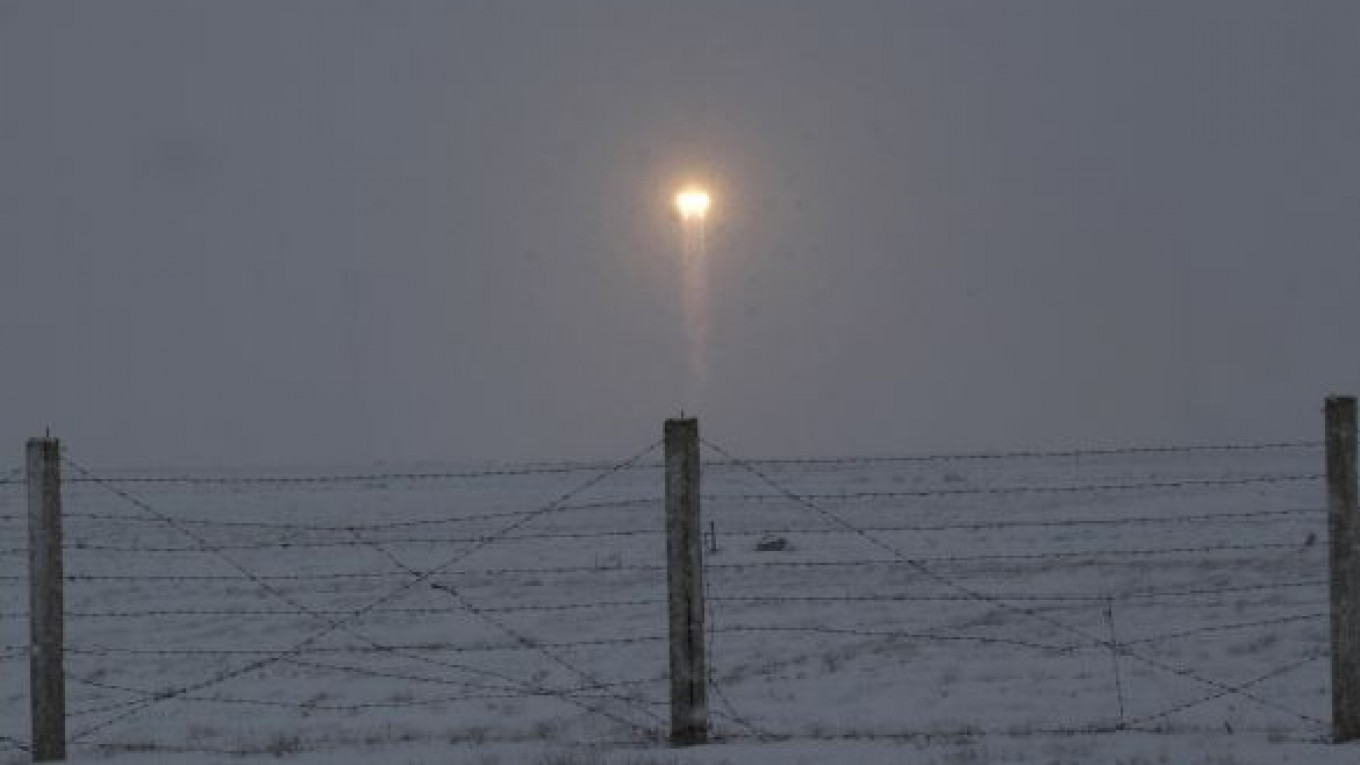The International Space Station got three new crew members Wednesday, temporarily doubling in crew size with the arrival of a Russian Soyuz capsule.
The Soyuz TMA-22 delivered NASA astronaut Dan Burbank and Russians Anton Shkaplerov and Anatoly Ivanishin, who blasted off from Kazakhstan on Monday. They moved onto the station about two hours after their capsule successfully docked.
The three newcomers were greeted with hugs and handshakes from American Michael Fossum, Russian Sergei Volkov and Japanese Satoshi Furukawa, who have been at the station since June and are due to return to Earth next week.
The 39-year-old Shkaplerov and 42-year-old Ivanishin are making their first flights into space. Burbank, 50, who will take over command of the space station, is a veteran of 12-day shuttle missions in 2000 and 2006. The three men are to remain aboard the space station until March.
Officials at Mission Control outside Moscow and the cosmonauts' families radioed congratulations to the crew.
The mission's launch had been delayed for two months because of the crash of an unmanned Progress cargo ship in August. That failed launch raised doubts about future missions to the station because the rocket the crashed ship used had the same upper stage as the booster rockets carrying Soyuz ships into orbit. The delay cut the crew numbers to three. Another launch next month will take the station back to its normal six-person crew.
William Gerstenmaier, NASA's associate administrator for space operations, said in a televised news briefing shortly after the docking that "the Russian team did the tremendous job of getting the launch and the docking ready."
A Message from The Moscow Times:
Dear readers,
We are facing unprecedented challenges. Russia's Prosecutor General's Office has designated The Moscow Times as an "undesirable" organization, criminalizing our work and putting our staff at risk of prosecution. This follows our earlier unjust labeling as a "foreign agent."
These actions are direct attempts to silence independent journalism in Russia. The authorities claim our work "discredits the decisions of the Russian leadership." We see things differently: we strive to provide accurate, unbiased reporting on Russia.
We, the journalists of The Moscow Times, refuse to be silenced. But to continue our work, we need your help.
Your support, no matter how small, makes a world of difference. If you can, please support us monthly starting from just $2. It's quick to set up, and every contribution makes a significant impact.
By supporting The Moscow Times, you're defending open, independent journalism in the face of repression. Thank you for standing with us.
Remind me later.






